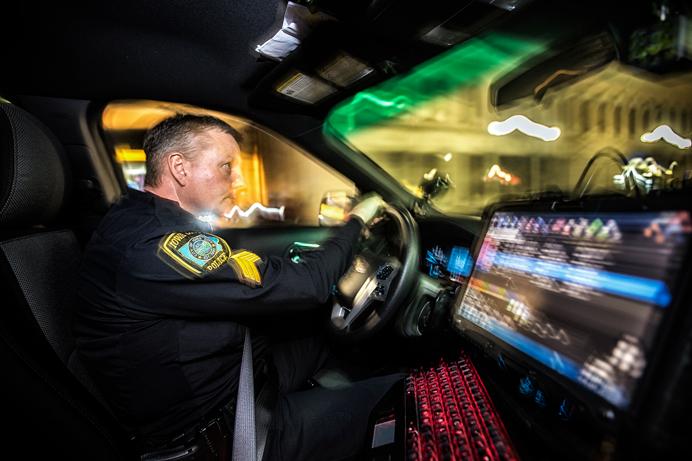By Kayli Reese
When going downtown for a night out with friends, the Department of Public Safety strongly advises University of Iowa students to keep in mind the potential consequences of their actions.
Alton Poole, community outreach officer for the UI police, gave a “Know the Law, Know Your Rights” presentation on March 9 to a group of students. He has given these presentations to highlight services promoting safety since 2011, and any group of students can ask to have one, he said. The presentation covered a variety of topics, including conduct between an individual and an officer and students’ rights in bars.Police have the right to detain a person, but they must have a good reason, and looking underage is reasonable, Poole said. Officers also do not have to say why they have stopped a person, Poole said, but must state why one might be searched and ask for consent.
Some of the most common charges for underage people, Poole said, are public intoxication and possession of alcohol, both of which may lead to further bad decisions.
“Being under the influence is no excuse for being dumb,” he said.
Iowa City police Sgt. Scott Gaarde cited Iowa City police reports showing the number of underage arrests made over the years. The 2016 arrest statistics report said 231 charges were given to underage individuals for public intoxication, and 254 were cited for underage possession. In addition, the report said there were 296 charges of underage people being in bars after hours — the fourth highest charge overall for 2016.
The 2017 arrest statistics report had data for the months of January and February. In these two months, officers have given 99 underage public intoxication charges, 56 underage possession charges, and 74 charges of an underage individual being in a bar after hours.
Underage individuals can be in a bar after 10 p.m., Poole said, if they are with a parent or the establishment earns more than 50 percent of their revenue from food. However, alcohol still cannot be within arm’s reach of underage persons, he said, as that indicates to an officer that one may have control over the beverage.
Officers also must stop people who they feel may be intoxicated regardless of the circumstances, Poole said. If they do not, he said, an officer could be libel if a death or accident occurs later.
Sara Bultsma, student safety liaison for the UI Student Government, said it is important for students to know their rights when it come to police so they may converse respectably with them and avoid potentially dangerous situations. Also, she said, it is important for underage students to be aware of underage drinking laws in place.
“A lot of students may feel that they’re automatically in trouble when they get caught [underage drinking], but there are laws in place to protect your well-being if you need medical attention,” Bultsma said.
UI freshman Johanna Chambers said she likes to go out to the bars to simply dance with her friends. When underage students like her know their rights when they’re in bars — such as knowing underage individuals are only able to stay in the bars until 10 p.m. — they can better enjoy themselves if they aren’t doing anything wrong.
“Sometimes, if a police officer is in a bar before 10, it can make people uncomfortable,” she said.
Poole said students do not usually think about the consequences when they go out, intending to simply have a good time.
“You’re not only here to get an education, but to enjoy life a little bit. We just want you to do it responsibly,” Poole said.



